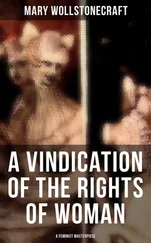Andrea Dworkin - The Political Memoir of a Feminist Militant
Здесь есть возможность читать онлайн «Andrea Dworkin - The Political Memoir of a Feminist Militant» весь текст электронной книги совершенно бесплатно (целиком полную версию без сокращений). В некоторых случаях можно слушать аудио, скачать через торрент в формате fb2 и присутствует краткое содержание. Жанр: Публицистика, на английском языке. Описание произведения, (предисловие) а так же отзывы посетителей доступны на портале библиотеки ЛибКат.
- Название:The Political Memoir of a Feminist Militant
- Автор:
- Жанр:
- Год:неизвестен
- ISBN:нет данных
- Рейтинг книги:4 / 5. Голосов: 1
-
Избранное:Добавить в избранное
- Отзывы:
-
Ваша оценка:
- 80
- 1
- 2
- 3
- 4
- 5
The Political Memoir of a Feminist Militant: краткое содержание, описание и аннотация
Предлагаем к чтению аннотацию, описание, краткое содержание или предисловие (зависит от того, что написал сам автор книги «The Political Memoir of a Feminist Militant»). Если вы не нашли необходимую информацию о книге — напишите в комментариях, мы постараемся отыскать её.
The Political Memoir of a Feminist Militant — читать онлайн бесплатно полную книгу (весь текст) целиком
Ниже представлен текст книги, разбитый по страницам. Система сохранения места последней прочитанной страницы, позволяет с удобством читать онлайн бесплатно книгу «The Political Memoir of a Feminist Militant», без необходимости каждый раз заново искать на чём Вы остановились. Поставьте закладку, и сможете в любой момент перейти на страницу, на которой закончили чтение.
Интервал:
Закладка:
None of us knew life without Hiroshima and Nagasaki. In
K-3 we hid under our school desks, elbows covering our ears.
From grades four or five through graduation, we were lined
up three- or four- or five-thick against wal s without windows,
elbows over our ears. We were supposed to believe that these
poses would save us from the bomb the Soviets were going to
drop on us sometime after the warning bel rang. In the later
grades, our teachers herded us, then stood around and talked.
They didn’t seem to think that they were going to die, let
alone melt, any minute. They seemed more as if they were
going to chat until the bel rang and the next class began. In
the earlier grades the teachers would walk up and down the
aisles and tel us an elbow was outside the boundary of a desk
or we should stop giggling. Any child too big to get under the
desk wholly and ful y might wish the Soviets would nuke us;
after al , who wanted to be in school, in rotten school with
40


The Bomb
rot en teachers and rot en classmates? By the time I was being
herded in the seventh or eighth grade, I simply refused to go.
Not one teacher could explain the logic of elbows over ears in
the face of a nuclear onslaught. Not one teacher could explain
why they themselves had not flung their bodies up against a
wall or why their ears were bare naked and their elbows calmly
down by their sides. More to the point as far as I was concerned, not one teacher could explain why, if these were our last few minutes, we should spend them in such an idiotic
way. “I'd rather take a walk,” I would say, “if I'm about to die
now. ” My father was called in, a scene he described to me
shortly before he died at eighty-five: “I asked them what the
hell they expected me to do. ” The real question was, What
was one to do with these grown-ups, these liars, these thieves
of time and life - my teachers, not the Soviets? Did they
expect us to be so dim and dull?
They were helped by the saturation propaganda about both
the Soviets and the bomb. On the Beach was a really scary
novel by Nevil Shute about the last survivors down in
Australia. I remember just computing that it wasn’t going to
be me and maintaining an at itude of anger and disgust at the
adults. There were endless television discussions and debates
about whether or not one should build a bomb shelter and
fil it with canned food and water. The moral question was
whether or not one should let the neighbors in, had they
been obtuse enough not to build a shelter. Everything was
41


Heartbreak
calculated to make one afraid enough to conform. I can
remember times wanting my father to build a bomb shelter
for the family. Of course that’s hard to do in the cement of the
city, and by the time we had soil in the suburbs I had decided
it was al a scam. Maybe al the students except me and a few
others rested wearily against wal s and kept quiet, but most of
us knew we were being lied to, being scared on purpose, and
being treated like chumps, just stupid children. Those boys
who didn’t know ended up in Vietnam.
I’d read in newspapers and magazines about the people in
cities like New York who would not take shelter when the
alarms were sounded. Following on the model of the London
blitz, sirens would scream and everyone was expected to find
hiding in an underground shelter. But some people refused,
and they were arrested. I remember writing to Judith Malina
of the Living Theatre when she was in the Women’s House of
Detention in New York City for refusing to take shelter and I
was a junior in high school. The thrilling thing was that she
wrote me back. This letter back from her was absolute proof
that there was a different world and in it were different people
than the ones around me. Her let er was a lot of different
colors, and she drew some of the nouns so that her sentences
were delightful and fil ed with imagination. Since I had already
made myself into a resister, she affirmed for me that resistance
was real outside the bounds of my tiny real world. Her letter
was mailed from a boat. She was crossing the ocean to
42


The Bomb
Europe. She wouldn’t stay in the United States, where she
was expected to hide underground from a nuke. She was part
of what she called “the beautiful anarchist nonviolent revolution, ” and I was going to be part of it, too. I'd follow her to the Women’s House of Detention, though my protest was
against the Vietnam War, and then to Europe, because I could
not stay in the United States any more than she could. She
probably didn’t have my relatives, who were so ashamed that
I went to jail; and she probably didn’t have my mother, who
said I needed to be caged up like an animal - bad politics twice
over. I would not meet Judith for another fifteen years, but
she remained an icon to me, the opposite of the loathsome Miss
Fox, and I knew whose side I was on, where my bread was
but ered, and which one I would rather be. I did not care what
it cost: I liked the beautiful anarchist nonviolent revolution,
and so did most of my generation - even if “anarchist” was a
hard word and “nonviolent” was an even harder discipline.
There was another kind of bomb scare. Someone would
phone the school and claim to have hidden a bomb in it. The
students would be evacuated and, when the teachers got tired
of keeping us in lines, left to roam on the grass. There never
was a bomb, and there was no context of terrorism, and the
threats seemed only to come in nice weather - otherwise we
might al have got en cranky. We discussed whether or not the
grass under our feet felt pain, which teachers had infatuations
with each other, how we were going to thrive on poetry and
43


Heartbreak
revolution. These were the good bomb scares, after which
we’d be remilitarized into study hal s and classes and time
would pass slowly and then more slowly. There was never anything good about the nuclear-bomb scares, and even the conformists with elbows over ears did not like them. I was appalled that the United States had used nuclear weapons and
Читать дальшеИнтервал:
Закладка:
Похожие книги на «The Political Memoir of a Feminist Militant»
Представляем Вашему вниманию похожие книги на «The Political Memoir of a Feminist Militant» списком для выбора. Мы отобрали схожую по названию и смыслу литературу в надежде предоставить читателям больше вариантов отыскать новые, интересные, ещё непрочитанные произведения.
Обсуждение, отзывы о книге «The Political Memoir of a Feminist Militant» и просто собственные мнения читателей. Оставьте ваши комментарии, напишите, что Вы думаете о произведении, его смысле или главных героях. Укажите что конкретно понравилось, а что нет, и почему Вы так считаете.












